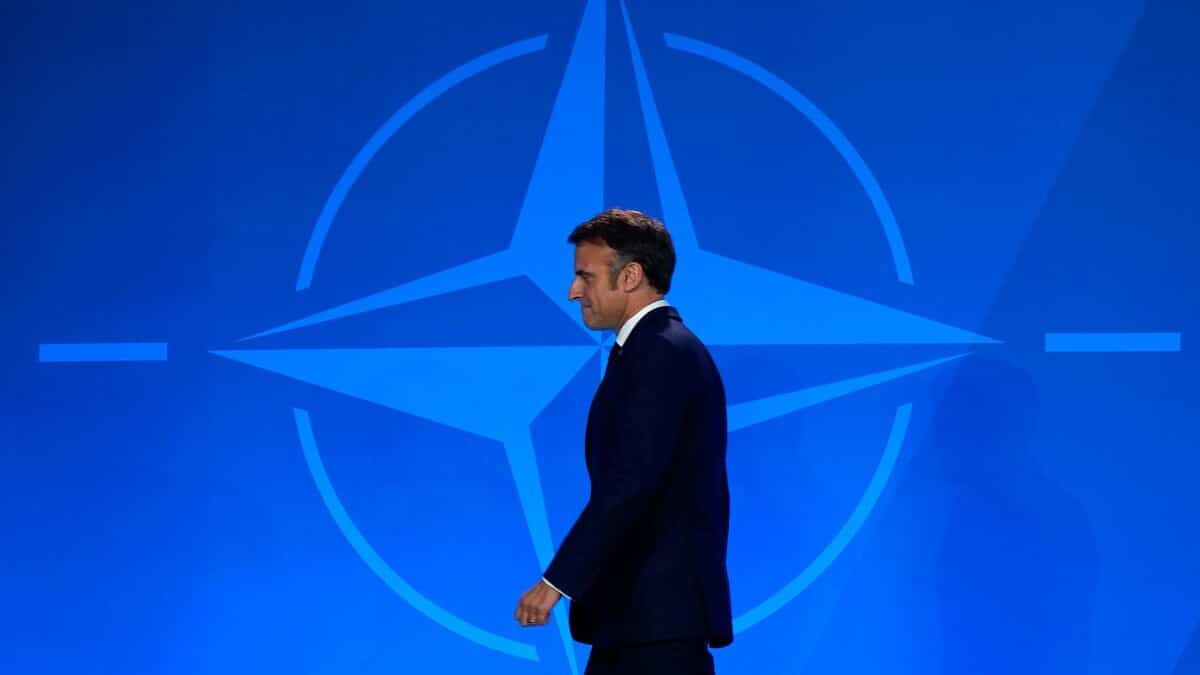
Three days after early legislative elections that plunged France into the unknown, French President Emmanuel Macron called on Wednesday on the “republican” political forces to “build a strong majority” and “pluralism” for the country, assessing that no one emerged victorious from the vote.
• Read also: Allegations of illegal financing: Marine Le Pen's 2022 campaign targeted for investigation
• Read also: The people saved France from the narcissism of its leaders.
• Read also: Emmanuel Macron asks Gabriel Attal to stay for 'country's stability'
The head of state, who broke his silence for the first time since Sunday and caused the elections with his decision on June 9 to dissolve the council, came out with an assessment that “no one won.”
“No political force can obtain a sufficient majority on its own, and the blocs or coalitions that will emerge from these elections are all in the minority,” Macron wrote in a letter to the French published in regional newspapers on Wednesday, while he was in Washington for the election.
Three blocs were eliminated from the vote: the left-wing alliance (190 versus 195 seats), followed by the centre-right presidential camp (about 160 seats), and the far-right (143 seats), which came in third place but achieved a historic breakthrough.
The president's position has caused opposition to escalate.
Jean-Luc Mélenchon, leader of the LFI (Radical Left) party, said that Emmanuel Macron “refuses to recognize the election results.”
The former MP added that the president must “bow down” to the New Popular Front, an alliance that brings together socialists, the LFI party, ecologists and communists.
The head of the environmentalists, Marine Tondelaer, also estimated that “institutional logic dictates that the NFP leaders be called in” so that they can propose “the name of the prime minister”, which they cannot do at the moment.
Having been conceived in a state of emergency after the shock announcement of the dissolution of the assembly, the NFP surprised everyone by taking first place on Sunday. But it does not form a single parliamentary bloc, and its total is far from the 289 elected representatives needed for an absolute majority.
In his message, the president asks “all political forces that recognize themselves in the republican institutions” to enter into a “sincere dialogue” to form a “broad coalition,” without specifying precisely which political forces he is targeting.
“This gathering must be centred around some of the country’s key principles, clear and shared republican values, and a practical and easy-to-read project,” Mr Macron added.
“In light of these principles, I will decide to appoint the prime minister,” the head of state points out, explaining that he will appoint him when the political forces “build” “compromises,” which he is supposed to give them “a little time.”
“Until then, the current government (Prime Minister Gabriel Attal, editor’s note) will continue to exercise its responsibilities and therefore be responsible for current affairs, as is the republican tradition,” Macron wrote, as France hosts the Olympic Games in less than a month from three weeks.
Major maneuvers
On the far right, the leader of the National Rally, Jordan Bardella, considered it “irresponsible” for the president’s message to be “now: ‘Deal with it’”.
Since Sunday, political groups have begun major maneuvers to determine how to govern and with whom in this political formation of blocs without an absolute majority.
The National Alliance Party is engaged in difficult internal negotiations due to historical differences within it.
The presidential camp is hesitant between approaching the Republican right or the Social Democrats.
Some, led in particular by Interior Minister Gérald Darmanin, are looking primarily to the right to find allies. “It is possible to have a right-wing prime minister, that would not bother me at all,” Mr. Darmanin declared on CNews, making it clear that he would not even be able to accept environmentalists in the government.
But another group in the presidential camp, especially its left wing, sees the issue as broader. MP Sacha Hulet, an early supporter of Macron, has announced that he will not participate in the presidential camp group and wants to create a group that moves “from the social right to the socialist left”.
Marine Le Pen, whose party was partially banned by the left-centrist Republican Front formed in the second round, had a good time denouncing the “swamp.”
“A certain number of maneuvers, especially major withdrawals, deprived us of an absolute majority,” she added, justifying this before her re-election as head of the National Front party in the assembly.






